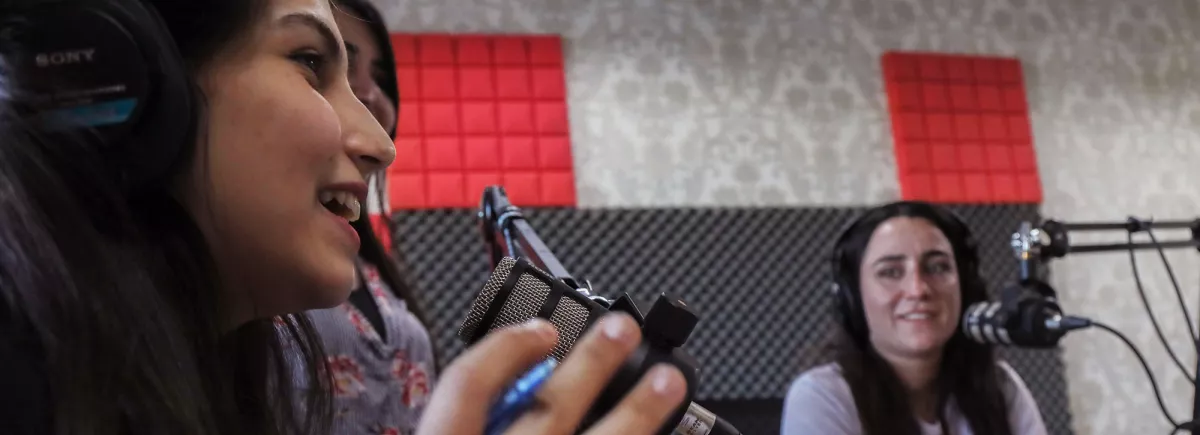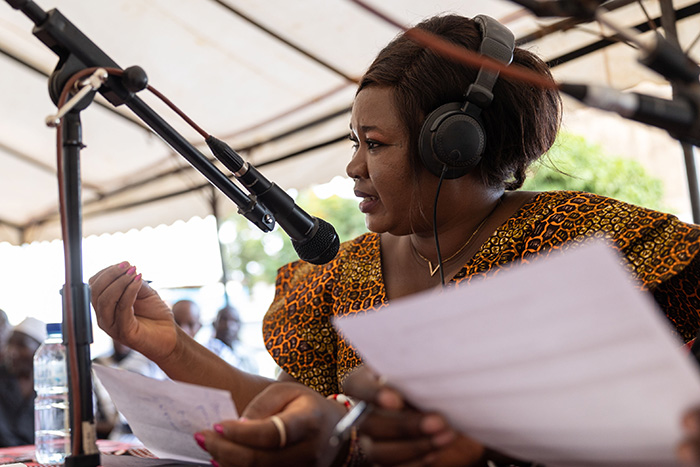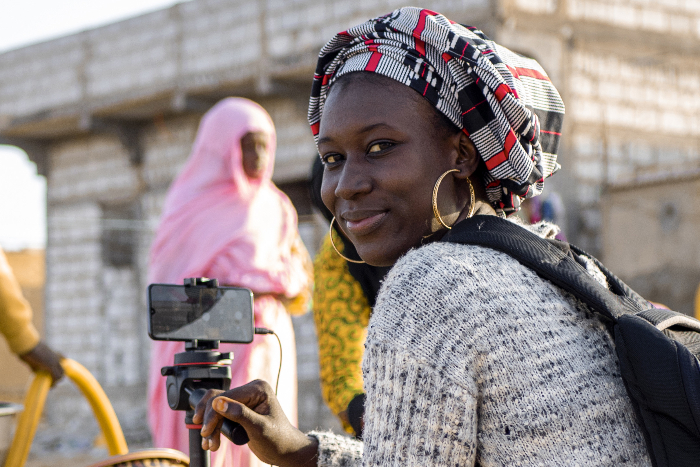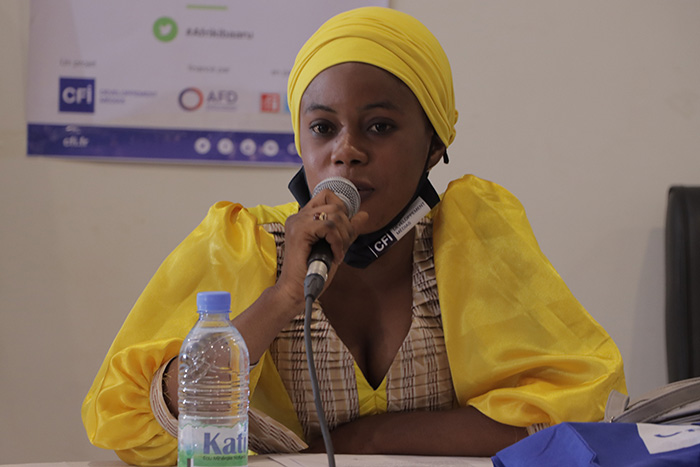
Women's rights: a simple matter of quotas?
This year's International Women's Day (8 March) is the perfect opportunity to reiterate that equality is not just a matter of quotas. It is also and above all the implementation of specific actions aimed at seeking out talent and skills and ensuring that they are noticed.
Who better than the media to achieve this?
It is important that we discuss gender equality. Encouraging it in action is even better. This is what CFI does through its projects, all of which include a gender element.
In addition to the quantitative approach, we commit on a daily basis to recognising top female experts and guaranteeing their visibility in the media and in editorial offices. If there are only three female experts in a particular field, it is our mission to find them, to support them in speaking out and, above all, to address any inferiority complex.
We are experimenting with different approaches, and it works! So let's persevere.
Here are some projects that were are proud to share with you on this symbolic day:
Echoes of women's voices
In rural regions of Morocco, less than one third of young women have attended school and more than half are illiterate. They therefore have limited access to the media and little thought of interacting with it. Through its Citizens’ Initiatives Association (Association Initiatives Citoyennes - AIC) and Kech Radio, CFI has been working to make women in rural areas aware of their ability to participate in social and media debates. The team took its mobile radio studio on a journey of more than 24,000 km to meet hundreds of women and allow them to speak up on subjects that concern them: economic empowerment, participation in political life, access to higher education, violence suffered, etc.
Two years on from the end of this project, CFI assessed its impact. To give a few examples, some of these women stood in local elections, some became radio hosts and others set up centres to combat illiteracy.
MediaSahel for Women
In the Sahel, women are still under-represented in the media. Faced with socio-cultural burdens, feelings of illegitimacy and a lack of self-confidence, they find it difficult to seize opportunities to make their voices heard. To encourage them to get involved in the public debate and to work more closely with the media, CFI sets up personal development and media training sessions for female representatives of civil society organisations.
Dozens of people have benefited in 2023.

Afri’kibaaru
Along the same lines, the Afri’Kibaaru project also runs media training sessions aimed at women in the Greater Sahel region. CFI also organises workshops alongside these training sessions with the editorial managers of partner media outlets, mostly men, with a view to encouraging the inclusion of female experts in their productions: shows, debates, reports, etc.
These awareness-raising campaigns targeting female experts and editorial managers have led to the creation of a network between the two, thereby perpetuating opportunities for women to speak out in the media.

Equal Voices
In late 2022, CFI published a study into gender equality in the media and media content in sub-Saharan Africa. It reveals that many women working in the media have fallen victim to discrimination and violence. In the light of these findings, the Equal Voices project aims to combat gender inequality and stereotypes in the media in Cote d'Ivoire and Ghana.
How? By encouraging media managers to promote a better representation of women in both their managerial practices and their editorial policies.
We share this ambition with the Media Foundation for West Africa (MFWA).

CFI is committed to giving women a voice and making them visible in the media world, both in editorial offices and as contributors. Recognising their roles as managers or experts means ensuring a transition towards true equality between men and women and therefore between all citizens, regardless of their gender.
In order to achieve this, we will continue to grow our projects and to develop them wherever they are needed.
Everyone can act at their own level.
Thierry Vallat, CEO of CFI


